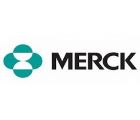
Merck, known as MSD outside the United States and Canada, today announced that the Phase 3 KEYNOTE-412 trial evaluating KEYTRUDA (pembrolizumab), Merck’s anti-PD-1 therapy, with concurrent chemoradiation therapy (CRT) followed by KEYTRUDA as maintenance therapy (the KEYTRUDA regimen), did not meet its primary endpoint of event-free survival (EFS) for the treatment of patients with unresected locally advanced head and neck squamous cell carcinoma (HNSCC).
At the final analysis of the study, there was an improvement in EFS for patients who received the KEYTRUDA regimen compared to placebo plus CRT; however, these results did not meet statistical significance per the pre-specified statistical plan. The safety profile of KEYTRUDA in this trial was consistent with previously reported studies in HNSCC. Results will be presented at an upcoming medical meeting.
“There have been limited advances for patients with locally advanced HNSCC, and unfortunately, these results suggest that this disease remains very challenging to treat,” said Dr. Eliav Barr, senior vice president, head of global clinical development and chief medical officer, Merck Research Laboratories. “We are proud of the significant role KEYTRUDA plays in the treatment of certain later stages of HNSCC, and we are committed to investigating KEYTRUDA-based regimens for this debilitating type of cancer in earlier stages of disease. We are grateful to the patients and investigators for their participation in this study.”
KEYTRUDA is currently approved as monotherapy and in combination regimens for appropriate patients with metastatic or with unresectable, recurrent HNSCC in the U.S., Europe, China, Japan and other countries around the world. Merck currently has the largest immuno-oncology clinical development program in HNSCC and is continuing to advance multiple registration-enabling studies investigating KEYTRUDA as monotherapy and in combination with other medicines, including KEYNOTE-689 for the neoadjuvant and adjuvant treatment of resectable locally advanced HNSCC.
KEYNOTE-412 is a randomized, double-blind Phase 3 trial (ClinicalTrials.gov, NCT03040999) evaluating KEYTRUDA with concurrent CRT, followed by KEYTRUDA as maintenance therapy for the treatment of patients with unresected locally advanced HNSCC. The primary endpoint was EFS, and the secondary endpoints included overall survival and safety. The trial enrolled an estimated 780 newly diagnosed adults with oropharyngeal or larynx/hypopharynx/oral cavity squamous cell carcinoma who were randomized to receive KEYTRUDA (200 mg every three weeks) in combination with CRT (cisplatin plus radiation), followed by KEYTRUDA as maintenance therapy for approximately one year, or placebo plus cisplatin and CRT, followed by placebo.

Subscribe To Our Newsletter & Stay Updated